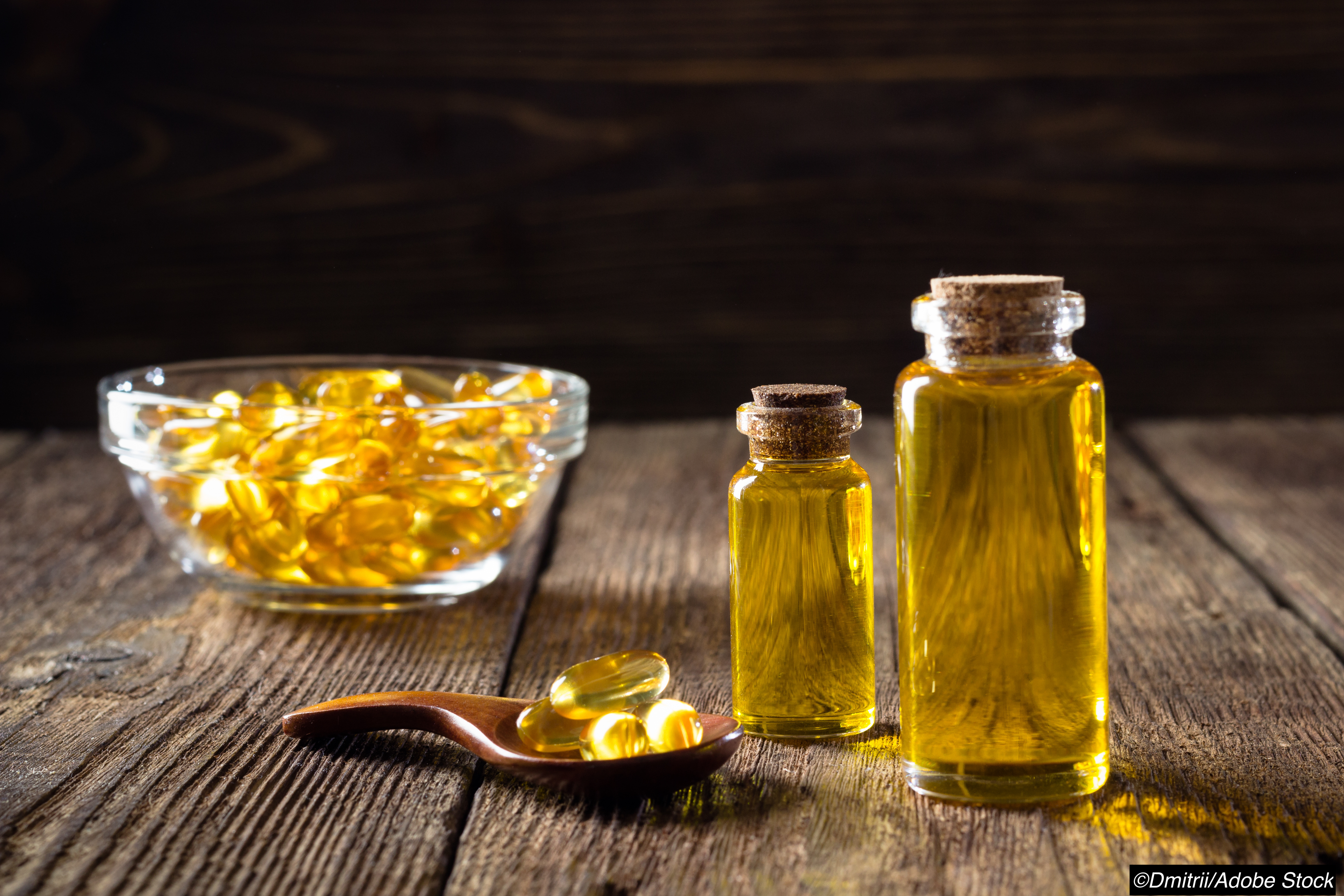Purified fish oil tablets (Vascepa) did not significantly prevent non-hospitalized patients diagnosed with Covid-19 disease from hospitalization or death when compared with placebo, researchers reported at the virtual 2021 scientific sessions of the American Heart Association.
Of the 986 patients who were assigned to icosapent ethyl in the PREPARE-IT 2 trial, 110 of those people or 11.16% experienced the primary endpoint of requirement for hospitalization or death compared with 135 of 1,030 patients or 13.69% who received placebo in the trial (P=0.166), reported Raphael Diaz, MD, of Fundacion Ecla, Rosario, Argentina, at an AHA press conference. There were four deaths among those taking icosapent ethyl versus eight deaths in the placebo arm during the 28-day period following inclusion in the trial.
The differences indicated that treatment with icosapent ethyl translated to a 16% reduced risk of experiencing the primary endpoint, Diaz said, but that difference was not statistically significant. “Icosapent ethyl was well tolerated compared with placebo,” he said, “though there was a higher rate of discontinuation with icosapent ethyl.
“Larger, randomized trials powered for about a 15% relative risk reduction with icosapent ethyl are needed to establish whether or not icosapent ethyl may have a role in the management of Covid positive outpatients,” he added.
Diaz said the researchers sought to use the potent anti-inflammatory properties of omega-3 fatty acids to help non-hospitalized Covid patients prevent exacerbation of their disease that would require being in a hospital setting. Previous trials, he noted, have shown that icosapent ethyl, a purified ethyl ester of the omega-3 fatty acid eicosapentaenoic acid, reduced c-reactive protein and improved symptoms in outpatients with Covid-19. “We sought to determine if icosapent ethyl might be effective in reducing the risk of Covid-19 related morbidity or mortality in symptomatic non-hospitalized patients with a positive diagnosis of Covid-19,” he reported. “Furthermore, we sought to examine the safety and tolerability of a high loading dose of icosapent ethyl (twice the dose approved for cardiovascular risk reduction) in this population.”
For the PREPARE-IT 2 trial, the dosing regimen was 8 g of icosapent ethyl or matching placebo (four capsules every 12 hours with food) for the first three days followed by 4 g of icosapent ethyl or matching placebo (two capsules every 12 hours with food) thereafter from day four to day 28. The trial enrolled people at least 40 years old with a Covid-19 diagnosis confirmed with a SARS-Cov-2 test. All participants were symptomatic for seven days or less. Although symptomatic, the participants had no clear indication for hospitalization.
The press conference designated discussant, Erin Michos, MD, associate professor medicine at Johns Hopkins University, Baltimore, said, “Icosapent ethyl in the REDUCE IT trial at doses of 4 grams twice a day was shown to reduce major adverse cardiovascular events by 25%, and this benefit was beyond its triglyceride—lowering and brought up these other potential favorable properties of icosapent ethyl, such as being anti-inflammatory and anti-thrombotic.
“We think that inflammation plays a causal role in Covid progression severity,” Michos added. “And Covid is also a condition that increases hypercoagulability and can increase blood clots. So, it makes sense to task icosapent ethyl in this population.”
Putting this in context with prior studies, Michos pointed out that icosapent ethyl was used to try to prevent people from contracting Covid among those most at risk of getting the disease, and it didn’t work in that population. That said, a small study last year of 100 patients who were already Covid positive did show that icosapent ethyl did reduce c-reactive protein and also improved symptoms.
“I congratulate Diaz and his colleagues for now testing this in a larger study—2,000 outpatients who were Covid positive, and we saw that everything trended in a favorable direction—there was a 16% reduction in hospitalization and death, but this did not meet statistical significance, possibly because there were fewer events than anticipated,” she said.
As the pandemic progresses, the disease landscape has changed, she noted. “Fortunately, Covid hospitalizations are going down due to broad adoption of vaccines, so it didn’t quite meet its endpoint, but reassuringly at 8 grams a day, which is twice the dose we use for cardiovascular prevention, at least in these 28 days, there was no increased risk of atrial fibrillation—which we have seen with some of these omega-3 preparations—and there was no increased risk of bleeding. So there was very good safety.”
“You would need a larger trial to definitively show whether icosapent ethyl can help Covid positive outpatients, but a larger prevention strategy would be the broad adoption of vaccination globally,” she added.
-
Fish oil cannot be recommended as a treatment for non-hospitalized Covid-19 disease.
-
Vaccination remains the best way to control Covid-19 infection.
Edward Susman, Contributing Writer, BreakingMED™
Michos disclosed no relationships with industry.
Diaz disclosed relationships with Dalcor, AMARIN, PHRI, and Lepetit SA.
Cat ID: 232
Topic ID: 74,232,730,232,190,926,192,927,925,934,231



